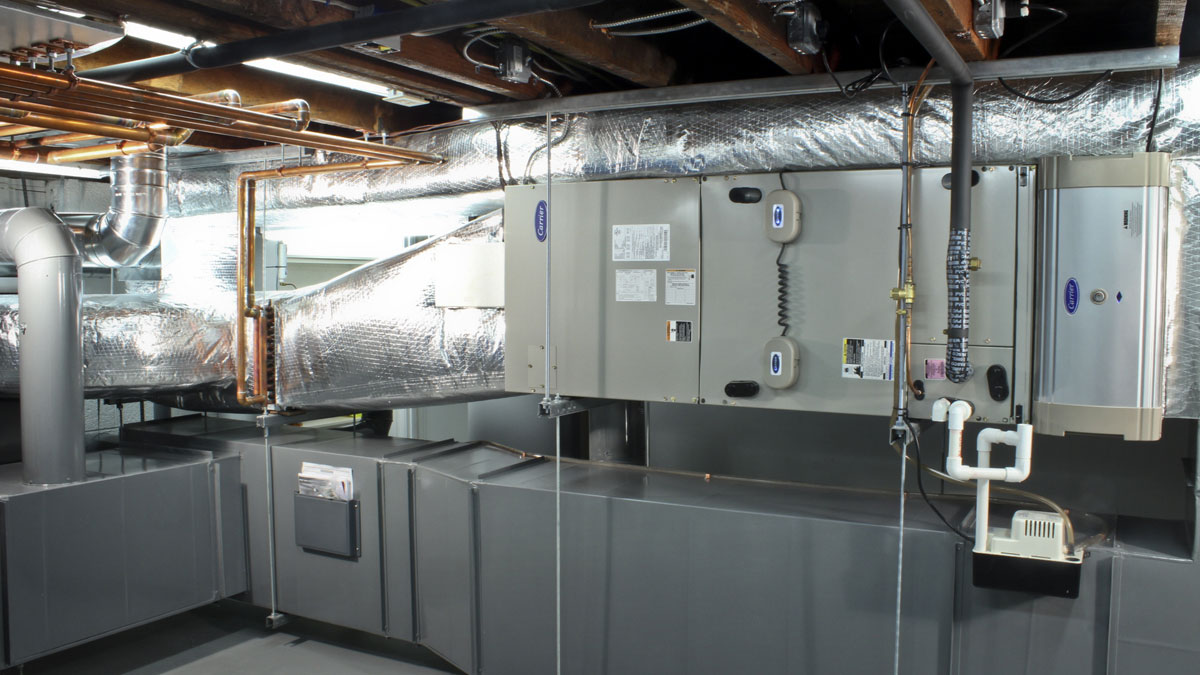This post defines the meaning of the term “HVAC” which stands for: Heating, Ventilating, Air Conditioning, and is pronounced: “H” “VAC.”
H-V-A-C is broken down, as follows…
Heating
Gravity Hot Water (GHW) – Rare
Forced Hot Water (FHW)
Gravity Hot Air (GHA) (no fan/blower) – Rare
Forced Hot Air (FHA) (with fan/blower)
Steam
Heat-Generating Equipment (equipment that converts fuel/energy to heat)
Furnaces
Space Heaters
Boilers
Water Heaters
Heat Pumps
Resistive Heaters
Fireplaces
Stoves
The Sun – Passive Solar – Glass Thermal Units
Terminal Units (equipment that emits heat that is generated by types of heating systems described above)
Steel & Cast Iron Radiators
Baseboard Convectors – Copper Fin Tube
Baseboard Convectors (Radiant) – Cast Iron
Panel Radiators (Convectors) – Steel
Fan Convectors (Hot water coil & Fan)
Air Handlers (Hot water coil and blower)
Radiant Panels (floor; ceiling; wall)
Burners (associated with heating)
Rotary-Type – (rare)
Gun-Type
Atmospheric-Type
Pot-Type (rare)
Electric Resistive
Fuels (associated with heating)
#2 Fuel Oil
#6 Bunker Fuel
Waste Oils (typically, automotive and cooking oil)
Kerosene
Propane (LPG)
Natural Gas (NG)
Butane
Methane (fossil fuel-based and “other”)
Chord Wood
Wood Pellets
Bio Fuel (manufactured and derived from plants)
Coal
Electricity
Here in New Hampshire, every building – intended to be occupied by humans in winter – has some type of heating system, but not all are “central heat” systems.
If/when you have a heating “emergency,” it will be helpful when you call an HVAC contractor/service company to explain to them:
-
What type of heating system you have.
-
What type of fuel your heating system utilizes.
-
What the nature of your heating service issue is.
Ventilating
Heat Recovery Ventilators (HRV)
Energy Recovery Ventilators (ERV)
Direct Air Replacement (such as a “whole-house exhaust fan)
Ventilating systems are typically controlled automatically by way of a Carbon Dioxide (C02) activated device similar to a thermostat, or a Dehumidistat activated by a Relative Humidity (FH) sensing device.
Air Conditioning
Air Conditioning Systems Types Include:
-
Central AC
- Automotive AC
-
Ductless – “Mini Split” AC and Heat Pumps
-
Swamp Coolers (in dry climates) Evaporative Cooling
Refrigerating (R)
Often you will see a variation of the HVAC acronym: HVACR. Refrigerating typically refers to Commercial Refrigeration in stores and restaurants.
-
Reach-ins
-
Walk-ins
-
Sandwich Salad Units
-
Beverage Cases
-
Chest Freezers

